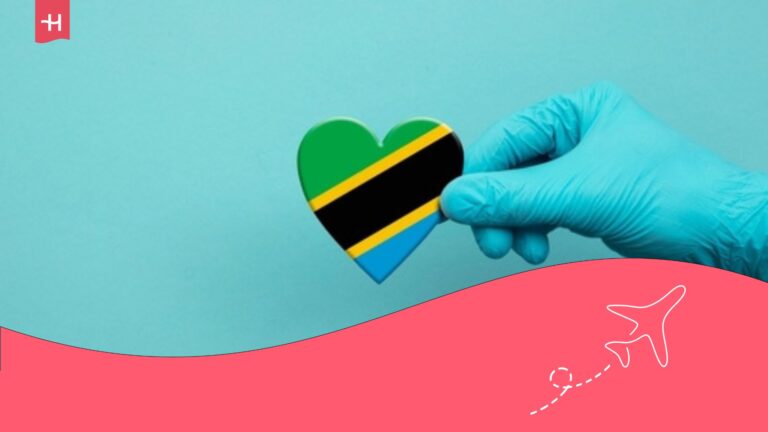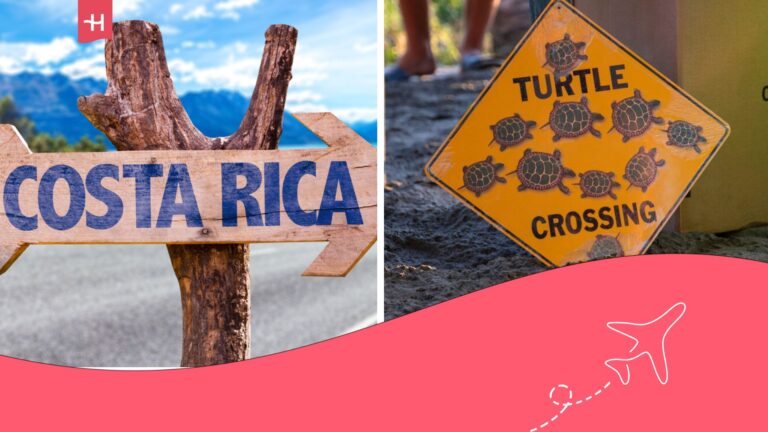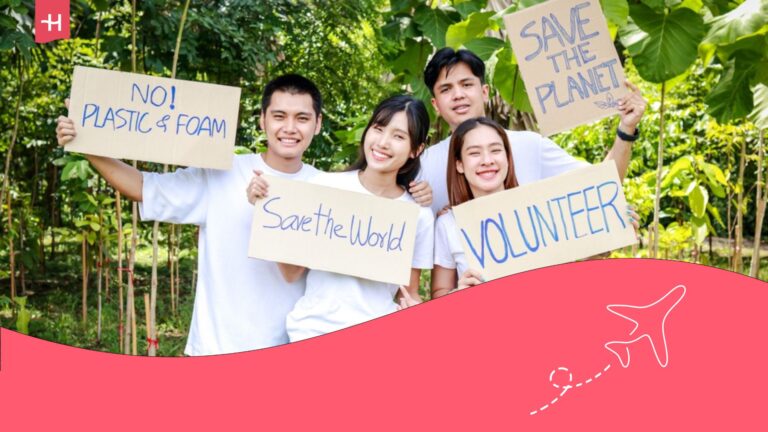Volunteering in France: Find the best option for you
Volunteering in France will allow you to get to know the country, learn about its culture and people and live an unforgettable experience.
Ever dreamed of experiencing France from a different angle. Sure, climbing the Eiffel Tower and enjoying a fresh croissant are great, but getting involved in a social, cultural, or environmental cause can be even more rewarding. Volunteering in France offers a unique chance to dive into local life, work with purpose-driven organizations, and make a positive impact. All while growing as a person and discovering a beautiful country along the way.
The great thing is that France offers a wide range of volunteer programs for internationals. From social projects in under-resourced neighborhoods to preserving historic sites, supporting cultural events, or joining rural initiatives in the Pyrenees. Volunteering here is seen as a meaningful exchange, a chance to learn, and a way to be part of community-driven action.
If you’ve already picked France as your destination, this guide will walk you through everything you need to know before taking the plunge. We’ll cover what makes volunteering here so rewarding, what it takes to apply, which programs are worth checking out, and how to make it all happen without spending a fortune.

What are the benefits of volunteering in France?
Volunteering in France is about so much more than lending a hand—it’s a powerful way to truly connect with the country, experience its culture from the inside, and grow on a personal level. This kind of journey doesn’t just make a difference for the communities you support, it transforms you too.
If you don’t quite believe it, take note of these aspects that will make your volunteering in France a totally worthwhile experience.
1. Experience French culture from the inside
Most people who visit France only get to see the tourist-friendly side. Volunteering, on the other hand, offers a very different (and often more challenging) experience. You’ll be stepping into local communities, working with neighborhood groups, cultural centers, or rural initiatives, and sharing daily life with French locals and fellow volunteers from around the world.
This kind of firsthand experience is one of the most authentic ways to really understand French culture. From how people organize their communities to how they connect, eat, think, and celebrate.
2. Learn or improve your French
Many programs take place in settings where only French is spoken, making it the perfect chance to learn or sharpen your language skills through full immersion. While you might get by with some English in bigger cities, in rural or community-based volunteer projects, you’ll find yourself thinking in French before you even realize it.
3. Be part of projects with real impact
France has a long-standing culture of civic engagement and community involvement. NGOs, social centers, and environmental groups are well-organized and welcome volunteers as active, valued members of their teams.
Through your efforts, you can help foster inclusion for migrants, protect important natural and cultural spaces, support local education, and celebrate French art and culture in meaningful ways.
4. Access to accommodation and food without spending a fortune
France isn’t the priciest country in Europe, but it’s not the cheapest either. Most people need to save up for a few months to really enjoy their trip. That said, volunteering is a great way to experience the country’s charm without spending a fortune.
While volunteering isn’t a paid activity and usually involves some costs, most nonprofit programs include accommodation (like shared houses, hostels, or rural centers) and basic meals. This way, you can stay in France for weeks or even months without the typical tourist expenses.
5. Travel with purpose and transform your experience
Volunteering in France might mean exploring medieval castles, wandering through Bordeaux’s vineyards, or living in a small Alpine village. This kind of experience lets you connect with people, stories, and landscapes in ways you never expected. It’s travel with meaning.
6. Make international friendships
Cultural exchange is often one of the most rewarding and memorable parts of volunteering. In most programs, you’ll share your time and activities with volunteers from all over the world. Whether it’s in volunteer houses, work shifts, group meals, or shared outings, these moments become the foundation for deep friendships and lifelong connections.
What are the requirements for volunteering in France?
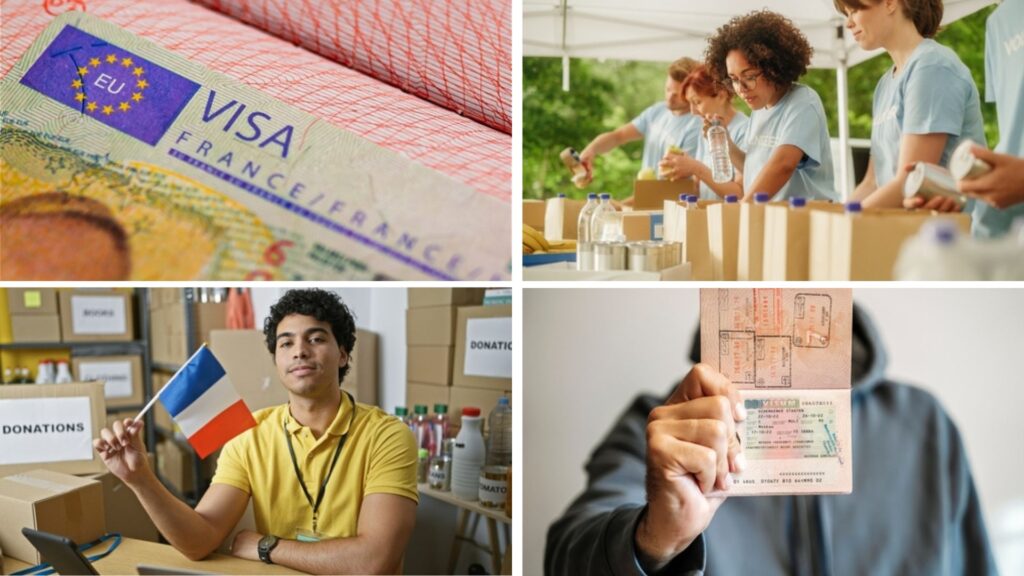
Volunteering in France isn’t difficult, but like any trip, it does take some planning. It’s not just about having the desire to help, you’ll need to meet a few requirements. Don’t worry, it’s nothing too overwhelming.
To help you enjoy your volunteer experience with peace of mind, we’ve put together a quick overview of the key requirements and documents you’ll need to travel to France.
1. Volunteering in France visa
The first thing to consider is your visa, especially if you’re coming from Latin America or outside the EU. If you already hold a European passport you can enter France and join volunteer programs without needing a special visa.
However, if you are a citizen of Latin America or outside the EU, you should consider:
- For stays shorter than 90 days: In many cases, you can enter on a tourist visa—as long as the volunteer work is unpaid and backed by an official invitation letter from the host organization.
- For stays longer than 90 days or with benefits (accommodation, food): It’s often a good idea to apply for a volunteer visa (Visa de Long Séjour – Volontariat), which allows you to legally work with a recognized NGO.
In both cases, it is essential that the organization issues you an official document justifying the volunteer activity.
2. Minimum age and training
Most volunteer programs in France require you to be at least 18, although some platforms like Service Civique accept participants as young as 16 (as long as they’re EU citizens or residents). You don’t need any specific academic qualifications, but motivation, commitment, and sometimes a bit of relevant experience (depending on the project) are definitely expected.
3. Language
While many volunteer programs operate in English, if you’re joining a social, cultural, or educational project, you’ll likely need an intermediate to advanced level of French. For environmental, rural, or international programs English is often enough to get by.
When choosing a program, make sure to check whether French is required. Some organizations even offer basic language training beforehand if you’re just starting out, so it’s worth looking into.
4. Medical and liability insurance
In most cases, having international health insurance that covers your entire stay is a must. It can save you a lot of money if you need medical care since healthcare for foreigners in France can be pricey. Not sure which plan to go with? Check out our guide to the best health insurance options for Europe.
Some programs also require liability insurance (to cover accidents that may damage third parties or property).
5. Basic documentation to submit
One of the less exciting parts of traveling is gathering all the documents you might need when you arrive. The good news is, if you take care of this before you board the plane, you can enjoy a stress-free stay knowing everything’s in order.
In the case of volunteering, most programs will ask you for:
- Valid passport (at least six months).
- Motivation letter.
- Program registration form.
- CV in French or English.
- Criminal record certificate (in some cases).
- Proof of funds (if required by the visa).
6. Vaccines and health
France doesn’t require any mandatory vaccines for entry. However, it’s a good idea to be up to date on tetanus, hepatitis A and B, and COVID-19 shots. Some organizations might ask for proof. If you’re heading to rural areas, having insect repellent and a basic personal first-aid kit is also recommended.
7. Administrative costs and possible payments
Many volunteer programs in France don’t charge a fee (like Service Civique or Concordia) but some do ask for a contribution, typically between $115-570. This usually covers things like training, housing, meals, and group outings.
Keep your connection active in France with Holafly
While volunteering, you’ll need internet to stay in touch with coordinators, looking up directions, or keeping in touch with loved ones. While cities usually have reliable internet, rural areas can be hit or miss. That’s why having an eSIM is a smart way to ensure you’re online as soon as you arrive.
To stay connected during your time in France, check out Holafly’s monthly plans—they offer options like 10 GB, 25 GB, or unlimited data. Just set up the eSIM on your phone, and you’ll be online with fast 5G, a solid signal, and the ability to use multiple devices (all for $75 a month!). Plus, since it works throughout Europe, you won’t have to buy a new plan if your trip takes you to other countries.
Important: If you are a frequent traveler and want to stay connected without worrying about expensive roaming or looking for a new SIM at every destination, Holafly’s subscription plans are for you. With a single eSIM, enjoy internet in more than 170 countries for a fixed price and no surprises on your bill. Travel without limits and connect easily and securely! 🚀🌍

What are the best volunteer programs in France?
France has a strong network of organizations promoting both local and international volunteering. Some focus on cities, others work in rural communities, and many bring together young people from all over the world. Whichever you choose, you’re bound to have an experience that leaves a lasting impression.
The programs we’ve picked are designed to help you settle in, experience cultural exchange, and grow both personally and socially. We chose them because of their solid organization and the quality of the projects they offer.
1. Service Civique – Long-term volunteering for young people
Service Civique is a French national program that lets young people—typically between 16 and 25 years old (up to 30 for those with disabilities)—get involved in meaningful projects over an extended period. While it’s mainly aimed at residents of France or the EU, some organizations also welcome international volunteers.
Whether you’re interested in education, culture, health, sports, the environment, or social inclusion, there’s sure to be a program that matches what you want to offer.
| Feature | Detail |
| Requirements | 16 to 25 years old, European nationality or specific agreements with local NGOs |
| Duration | 6 to 12 months |
| Includes | Accommodation, medical coverage, training, monthly allowance ($690 approx.) |
| Price | Free of charge (some logistical costs to be paid by the volunteer) |
| Popular programs | – School accompaniment – Digital inclusion – Cultural and sports animation |
2. Concordia France – Intercultural work camps
Concordia has been promoting cultural and generational exchange for over 70 years through international work camps, volunteer programs of various lengths, the European Solidarity Corps, and Civic Service projects. Their projects usually run for two to three weeks and bring together volunteers from around the world to work alongside locals on community initiatives like restoring historic sites, creating community gardens, painting murals, or organizing activities for young people.
Perfect for those who are looking for short but intense volunteer programs with a lot of group life.
| Feature | Detail |
| Requirements | From 18 years old, no previous experience, basic English or French |
| Duration | Two to three weeks |
| Includes | Accommodation, meals, insurance, group activities |
| Price | $170-340 per registration |
| Popular programs | – Restoration of castles – Community murals – Cleaning of trails in the Alps |
3. WWOOF France – Volunteering on organic farms
WWOOF (Worldwide Opportunities on Organic Farms) is one of the oldest cultural and educational exchange programs out there. It connects people from all over the world with organic farms, fostering learning experiences, cultural exchange, and building a community focused on sustainable farming practices. The program operates in more than 130 countries, including France.
If this kind of experience appeals to you, you’ll get food and accommodation in rural settings in exchange for a few hours of work each day. It’s a great way to experience a side of France that tourists rarely see. Tasks might include organic farming, beekeeping, artisan bread-making, or preserving native forests.
| Feature | Detail |
| Requirements | 18 or older, WWOOF membership, interest in sustainability |
| Duration | From one week to six months |
| Includes | Food and accommodation at the farm |
| Price | Annual membership: $29-45 (no volunteer fee) |
| Popular programs | – Biodynamic farming in Brittany – Cheese making in the Pyrenees – Self-sufficient living in Provence |
4. Animafac – University and cultural volunteering
Animafac is a network of student and cultural associations based in several French cities. If you’re a student or recent graduate, you can get involved in projects promoting the arts, alternative media, international solidarity, or youth-led environmental initiatives.
| Feature | Detail |
| Requirements | Must be between 18 and 30 years old, interested in associative life and social commitment |
| Duration | From one month |
| Includes | Training, material resources, networking |
| Price | Free of charge (some events may have a minimum registration fee) |
| Popular programs | – Student festivals – Social cinema – Creative workshops in public spaces |
What types of volunteer projects in France are there?
France is a country rich in geographical diversity, culture, and social challenges. That means volunteer opportunities can look very different depending on the project and region. Some take place in vibrant cities like Lyon or Paris, while others happen in small medieval villages or natural areas in the Pyrenees or Provence. What they all share is a genuine purpose and people who need support.
Do you want to know your possibilities? Read on, these are the main volunteer projects in France:
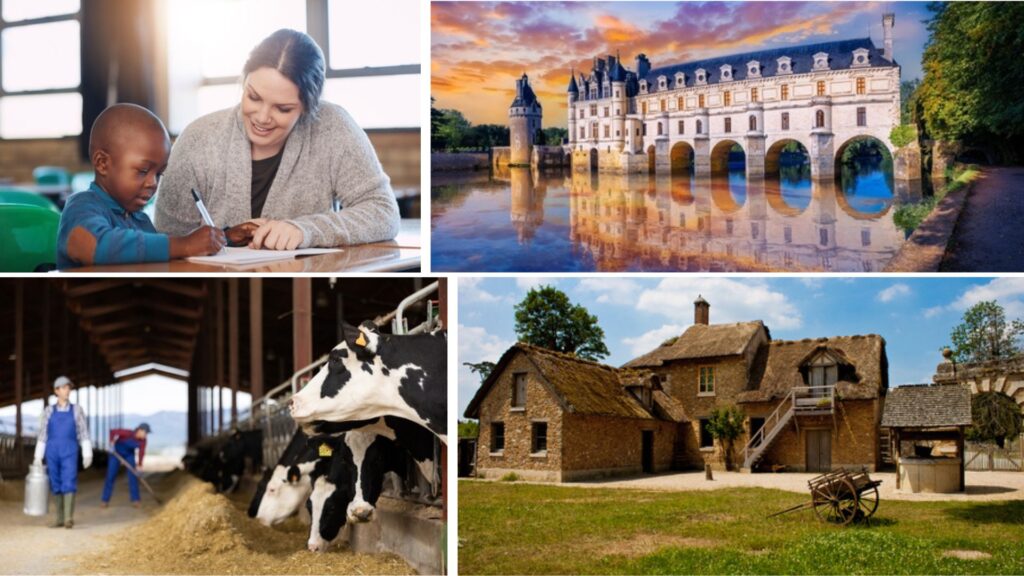
1- Restoration of historical heritage
France boasts an incredible cultural heritage, one of the richest in the world when it comes to historic monuments. Many of these sites are cared for by local groups that organize volunteer work camps, known as chantiers de bénévoles, to help preserve them.
If you love history and art, this kind of volunteering will be right up your alley. You can help restore old walls, churches, or castles, assist with painting, cleaning, and maintaining historic public spaces, or get involved in promoting the area’s cultural and tourist attractions.
The most frequent areas where this type of project takes place are Loire, Burgundy, Dordogne and Brittany.
2- Environment and conservation of natural areas
France’s natural heritage is just as rich as its history and culture. Across the country, you’ll find a vast network of national parks and protected reserves, many of which face pressure from urban growth and mass tourism. That’s why there are programs dedicated to preserving these ecosystems.
Typical tasks might include planting native trees, maintaining trails and eco-signage, cleaning up rivers, lakes, or coastlines, and even helping with wildlife monitoring and climate data collection.
This type of volunteer project usually takes place in the Alps, the Pyrenees, the Cévennes National Park and Corsica.
3- Community education and school support
If you feel called to support children, there are vulnerable neighborhoods and rural areas where educational organizations offer extra help to students who need to catch up or better integrate into the school system.
Work might include tutoring in reading, writing, or languages, organizing fun and sports activities, helping with homework, or leading extracurricular workshops in art or digital skills, among other things.
Where? Usually located in the suburbs of Paris, Marseille, Lille and rural villages in the center-south of France.
4- Support for people with disabilities or diversity
Volunteer projects in France reach out to anyone in need. Some NGOs focus on supporting people with disabilities by providing workshops, personalized assistance, and recreational activities.
If this kind of volunteering interests you, get ready to support day centers, take part in theater, music, or art workshops, assist during outings or trips, and help lead adapted sports activities.
Some areas where these projects are developed are Toulouse, Grenoble and Normandy.
5- Volunteering on organic farms
If you want to help out while enjoying a simple, rural experience close to the land, volunteering on an organic farm might be just what you need. Through networks like WWOOF, you can stay on family-run farms that practice sustainable, organic agriculture. It’s a unique chance to learn, contribute, and connect with farm life firsthand!
You’ll get involved in a variety of tasks like planting and harvesting, composting, caring for animals like goats, chickens, and sheep, baking bread, making preserves or cheese, and even natural building techniques.
The regions of Provence, Alsace, Occitania and the Pyrénées-Atlantiques are sites where this type of project is in force.
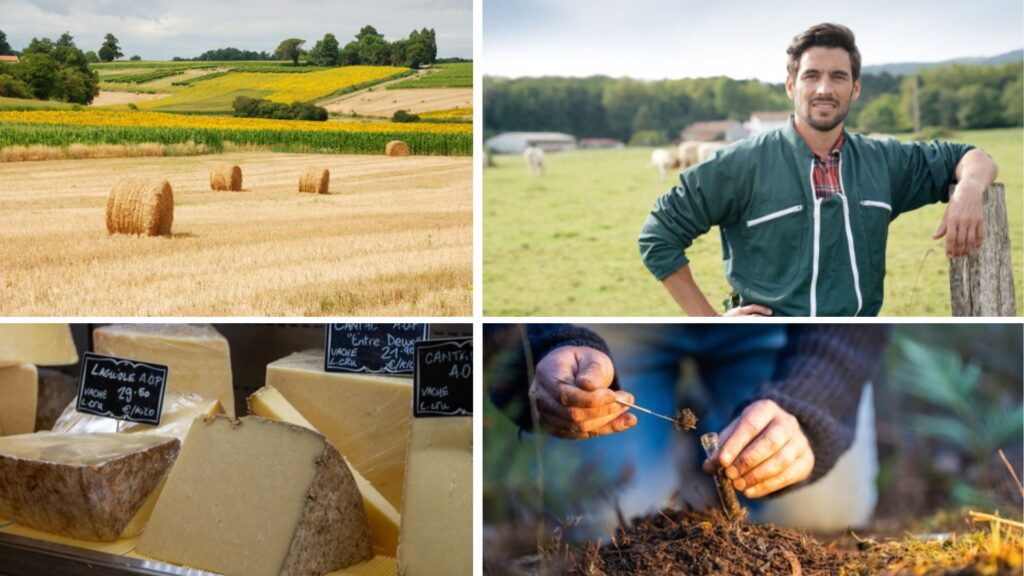
6- Cultural and artistic promotion
There’s pretty much a volunteer project in France for every interest—even for art lovers. Many youth and cultural groups organize festivals, fairs, exhibitions, or community workshops and are always looking for help with logistics, communications, and event management. Ready to join one?
In this kind of role, you might help set up venues and stage design, promote events on social media or create posters, coordinate activities, and handle photo or video coverage.
Where? In Lyon, Nantes, Strasbourg and Montpellier, for example.
How much does it cost to volunteer in France?
While many volunteer programs in France are free or low-cost, there are always some expenses to consider before you go. Some programs include accommodation and meals, but others don’t. That’s why it’s important to plan your budget carefully, knowing exactly what’s covered and what isn’t.
Here is a table with the most common estimated costs, updated for those who travel for a month as a reference.
| Type of expense | Estimated cost (USD) | Is it included in the programs? |
| Roundtrip airfare | $600-1,200 (may be much less if traveling from a nearby country) | No |
| Accommodation | $0-500 per month | Most are covered |
| Meals | $0-300 per month | Partial or total depending on program |
| Program fee | $0-500 | Varies by organization |
| International medical insurance | $40-80 per month | Mandatory. Most programs do not include it. |
| Local transportation | $40-100 per month | Sometimes included in urban volunteer programs. |
| Visa (if applicable) | $0-120 (long-stay visa) | Applies for stays +90 days |
| Certificates/extra documentation | $20-50 | May be required by some NGOs |
Frequently asked questions about volunteering in France
It depends on the length of the project and the type of work involved. If your country has a visa waiver agreement with France, you can volunteer for up to 90 days as long as it’s unpaid. For longer stays or if you’re receiving room and board in return, you’ll need a long-stay volunteer visa.
Yes, most programs require volunteers to be at least 18, but some, like Service Civique, accept volunteers from 16 if they’re European citizens or residents in France. There’s no maximum age, but they do look for good health and the ability to keep up with community life.
It’s best to apply at least two to three months ahead, especially if you need to sort out a visa or find affordable flights. Summer projects and workcamps fill up fast, so the earlier you sign up, the better your chances.
Not always. For rural, environmental, or international volunteer projects, basic English usually gets the job done. But if you’re involved in education, social inclusion, or supporting people with disabilities, you’ll typically need at least an intermediate level of French. Often, you can take a course beforehand to get ready.
While it varies by organization, most programs cover your accommodation and at least two or three meals a day. Some also include health insurance, training, and local transportation. There are fully funded options, but others require you to pay a registration fee.


















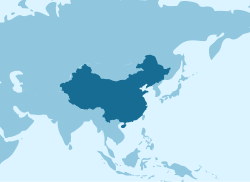




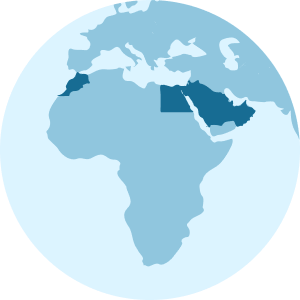














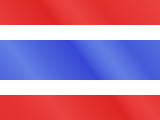







 Pay
Pay  Language
Language  Currency
Currency 


















 No results found
No results found



